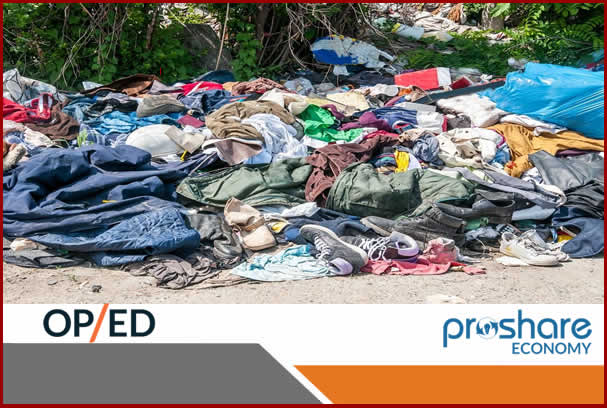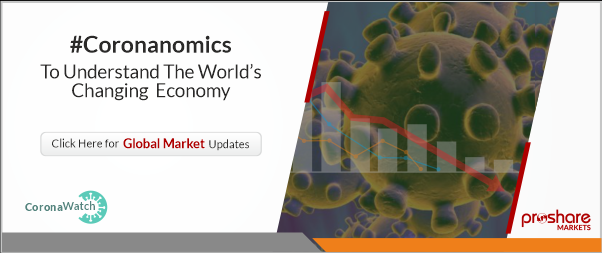Wednesday, April 29, 2020 / 04:59 PM / OpEd By AhmedSule* / Header Image Credit: Down to Earth
According to the World Bank, 2.01 billion metric tons of municipal solidwaste is produced yearly globally. On a relative basis, the rich countries ofthe Global North produce a sizeable proportion of the waste. The United Statesand Canada are the largest global waste producers witheach of its citizens generating on average 941 and 850 kilogrammes of wasteannually respectively while the UK is one of the largest generators ofelectronic waste globally producing an average of 21.1 kg of e-waste percitizen.
There is a long history of toxiccolonialism whereby rich countries in Europe and North America outsource itstoxic waste to the poor countries of the global south for recycling. As theWest became more environmentally conscious in the seventies and eighties, thedumping of hazardous waste such as plastics, electronic waste, radioactivematerials etc to developing countries with lax environmental standards becamethe norm. In 1988, around 4,000 tonnes of radioactive materials from Italywere dumped in Nigeria's Koko Port.The trend continues today. Around 40 % of US electronic waste is exported toAfrica and Asia while Bangladesh, India and Pakistan have become the hub forthe dismantling of ships discarded by industrialised countries. Somecommentators have described the Agbogbloshie dump in Ghana, which currentlyreceives e-waste from the West, as the world's largest electronic wastedump.
Before 2018, China was once the world'slargest importer of plastic waste accounting for 56% of the waste, however witheffect from April 2018, it banned the import of waste products into thecountry. This had the unintended consequences of developed countries routingsome of its waste products to countries like Malaysia, Vietnam and thePhilippines. An investigation by Greenpeace revealed that the export of plasticwaste from UK, Germany, Spain, France, Australia and the US to Malaysiaincreased from 168,500 tonnes in 2016 to 456,000 tonnes in the first half of2018.
As the West continues to outsource itstoxic waste to the rest of the world, it also outsources the health andenvironmental consequences of the waste. People living and working near thesites of these toxic dumps experience respiratory sickness, watercontamination, lead poisoning, developmental disorders and cancer, which hasresulted in several deaths. In Agbogbloshie where there is a large food market,the toxins from the waste have entered the food chain.
Recently, there has been pushback withsome South-East Asian countries putting measures in place to return contaminatedwaste to the west. The Global South got a boost in late 2019 when Saint Kittsand Nevis and Croatia ratified the Basel Convention Ban Amendment. The BaselConvention is the preeminent global legal instrument regulating thetransboundary movement of hazardous wastes. As a consequence of reaching therequired threshold for ratifications, the Ban Amendment, which prohibits theexport of hazardous waste from the Organization of Economic Cooperation andDevelopment (OECD) to developing countries, became international law witheffect from 5 December 2019.
Despite the enshrinement of the BanAmendment into international law, the Global South and environmentalists mighthave to temper their optimism for several reasons. First, even though 98countries have so far ratified the convention, some of the largest wasteproducers like the US, Canada, Australia and New Zealand are yet to ratify theban amendment, hence they don't fall within the scope of the ban amendment. TheUSA is not even a party to the Basel Convention Treaty. In 2019, the UnitedStates Environmental Protection Agency wrote to the OECD in2019 expressing its objection to the latter's implementation of the BaselConvention plastic waste amendments.
Second, certain wastes such as tyres andclothes, which have toxic properties and are also dumped in developingcountries, are not classified as hazardous under the BaselConvention. The export of used clothes to developing countries hasreached unmanageable levels. A recent ITV News investigation revealedthat 63, 418,990kg of second-hand clothes from the UK were sent to be sold inGhana in 2019. Some manufacturers of these clothes use hazardous materials likeformaldehyde, which the International Agency for Research on Cancer hasdescribed as carcinogenic. When waste tyres are shipped to developing countrieslike India and Malaysia, as these tyres are burnt, toxic chemicals and gasesare released into the atmosphere, which can cause considerable damages.
Third, there are loopholes within theBasle Convention, which can be exploited. The Convention allows the shipment ofhazardous materials if the exporting party declares the exact nature of thewaste and if the prior informed consent of the importer is obtained.Documentations could be altered to bypass this process by describing thematerial for repair purposes. This approach has often been used for scrapingships and disposal of electronic waste. Illegal and false documentation,corruption and mislabeling could circumvent the spirit of the Basel Convention.Furthermore, the lack of resources and ineffective monitoring structure mightallow hazardous material to be smuggled into the Global South.
Fourth, countries like the UnitedKingdom, Germany, Belgium and Italy ratified the Ban Amendment in 1997, 2002,2003 and 2009 respectively, however, despite the ratifications, these countriesare currently some of the largest exporters of waste to developing countries.
Finally, as long as the insatiableconsumption habits and accumulation of waste continue to persist in the GlobalNorth, it is will continue to jeopardise Basel Convention'sability to put an end to the one-way traffic of hazardous trash from the west tothe rest of the world.
About The Author
Ahmed Olayinka Sule is a CFA Charterholder,photojournalist and social critic. He is an Alumnus of the University of Arts,London; where he obtained a Certificate in Photojournalism. He has worked onvarious photojournalism projects including Obama: The Impact, JesusChrist: The Impact, The Williams Sisters etc. He can be contacted viae-mail at [email protected] and viaTwitter @Alatenumo
Previous Articles by the Author
- An Appeal to the Soul of VP Yemi Osinbajo: Please End the Climate of Tyranny - Ahmed Sule - Dec 08, 2019
- An Open Letter to Theresa May by Ahmed Sule, CFA - Mar 03, 2019
- The Betrayal Of The 21st Century Nigerian Intelligentsia - Jan 14, 2019
- Time for A Revolution says FT Editor; Publishes Ahmed Sule's ... - Oct 18, 2018
- It's Time for the Financial Times to Discover the Rest of the World - Oct 12, 2018
- Re: Commonwealth Head of Government Meeting (CHOGM) 2018 - Apr 23, 2018
- The Big Read: How To Spot The 21st Century Uncle Tom - Proshare - Nov 03, 2017
- #SharapovaGate: A Case Study On White Privilege - Proshare Mar 10, 2016
- Are Nigerian Banks Committing Crimes Against Humanity? - Oct 01, 2012
- Why Poverty Continues to Prevail In Our World ... - Apr 17, 2012
Related News
- Harnessing Informal Waste Collectors For Effective Waste Management In Nigeria
- Stakeholders Call for Effective Plastic Waste Management at the LBS CEO Roundtable on Sustainability
- Waste Woes in the World
- Visionscape Investors Raise Concern Over Waste Management Process In Lagos
- The Nigerian Flare Gas (Prevention of Waste and Pollution) Regulations 2018
- Flows on Used and End-of-life e-Products and e-Waste Between Africa and Europe
- Why Lagos needs an Integrated Waste Management Solution(2)
- Why Lagos needs an Integrated Waste Management Solution(1)
- Municipality Waste Management Contractors Limited Green Notes - Series 1
- How Recent Environmental, Waste and Effluent Law & Regulations Affect You
 Lagos, NG • GMT +1
Lagos, NG • GMT +1











 1769 views
1769 views










 Sponsored Ad
Sponsored Ad
 Advertise with Us
Advertise with Us









